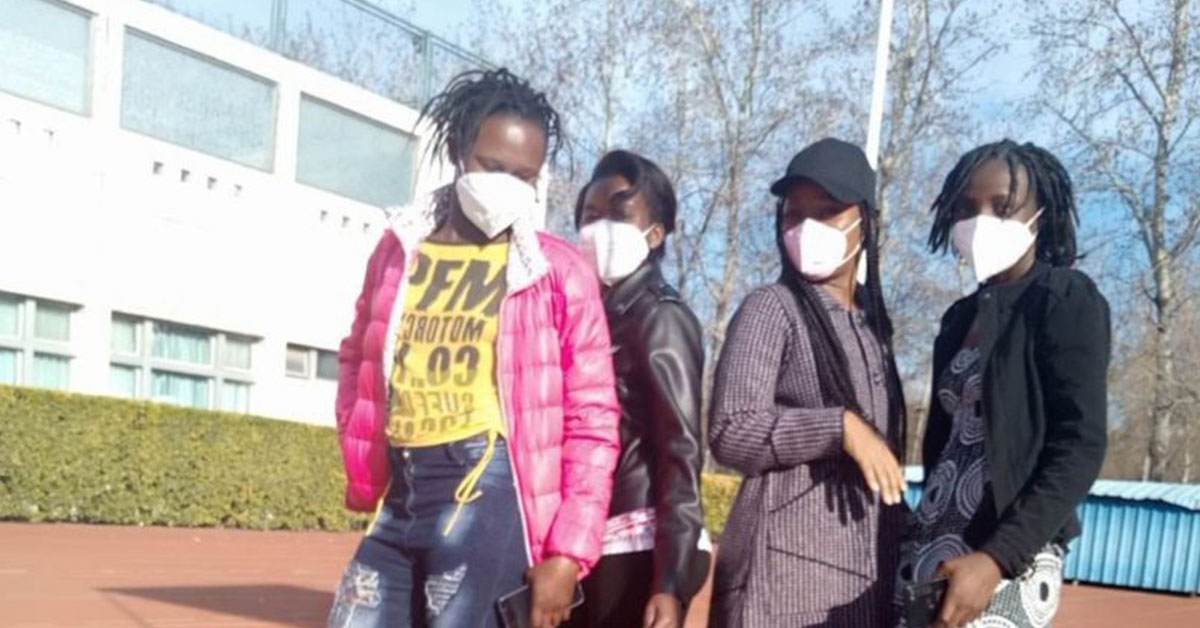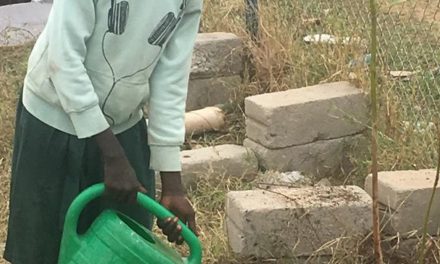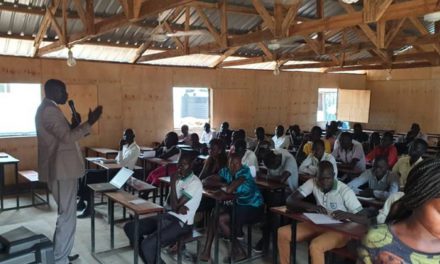
South Sudan: Over 5,000 school girls conceived during lockdown, GESS

“Some of the girls were forced to marry early by their families because they were idle since. There was no school. Some were raped, while others were because of early child marriage and traditional norms.”
By Winnie Cirino
A report issued by Girls Education South Sudan (GESS), a program that promoting girl’s education, says nearly 5,000 girls from the South Sudan’s 10 states got pregnant since schools were shutdown following the outbreak of COVID-19 in South Sudan last year.
The quality education officer at GESS says the closure of schools played a key role in refocusing the girls into marriage. Agnieska Mikulska, says the organization went to all the 10 states and the 3 administrative areas though did not reach some counties due to some challenges.
“We were aiming to go to every school but because of different issues like floods in certain locations, insecurity in other locations, also school closures, some of the schools, we did not reach. We went to 2,404 schools and we identified 1,837 boys who got married, we found 4,780 girls who got pregnant and 4,416 girls who got married.” Mikulska says, noting her agency collected data by interviewing head teachers on whether they know girls in their schools who got pregnant and boys who got married. She says through their mentoring program, they talked to some pregnant girls who said it’s all because of the situations they are going through that they ended up getting pregnant.
Girls Education South Sudan is a program funded by the government of the United Kingdom to transform the lives of generations of children in South Sudan, especially girls and those in the margins of society through education.
“Some girls, are out of poverty, tricked into situations where they find themselves later on pregnant, some of the girls have not thought through their actions and some of the parents are also giving up their girls because of the poverty.”
School closure was often named as one issue that refocused the girls and the families and that the families were thinking she is ready, or mature enough to be married off or that she can now concentrate on something else, Mikulska says.
She says several families did not have clear ideas when the schools were going to reopen and that’s why they engaged their children into marriages. She says early child marriage has been so problematic in South Sudan for several years now and there is need for intensified communications with the communities to stop the act.
Mikulka encourages girls to advocate for themselves and for men to also advocate for the protection of the young girls from early marriages since it is the man who marries the girl.
Esther Akumu, Director General for Gender, Equity and Inclusive Education at the national ministry of General Education says she decided to find the statistics of girls who got pregnant because several people from mainly Eastern and Western Equatoria States had started complaining of schoolgirls getting pregnant.
Akumu says according to the statistics, Warrap and Western Equatoria States had the highest numbers of the pregnant girls.
“Some of the girls were forced to marry early by their families because they were idle since. There was no school. Some were raped, while others were because of early child marriage and traditional norms.”Akumu says, adding the ministry is doing all it can to ensure these pregnant girls further their education.
In January this year, the undersecretary wrote a circular to the states asking all the pregnant girls to report to school and sit for their examinations.
“this was successfully done where we had a lot of girls who were pregnant who came back to school and sat for their examinations, be it primary or secondary and we are happy for that at least.”
“We realize this because during examinations we had about 11 girls who gave birth during examinations and some even the examination was taken to them when they were in their maternity ward.”Akumu says.
The ministry of General Education is working with partners to teach school girls comprehensive sexual education so girls can understand the consequences of having sex. The ministry is also creating awareness to parents to think of the life of their girls and the consequences of early marriages which results to a young girl getting fistula at birth.
Akumu says her agency plans to educate communities on the importance of girl child education. She urges parents to stop considering their children as a source of wealth.
“We are thinking of having a community Bi-law which should be developed by the communities themselves such that they take it seriously because we are seeing that all the laws, all the policies that we make at the national level does not work at the community level because they don’t participate in the development of the policy, so we feel that we should go down to the grassroots and try to come up with the bi-laws together with the communities which they may respect at the end.” Akumu tells The Insider.




















Recent Comments